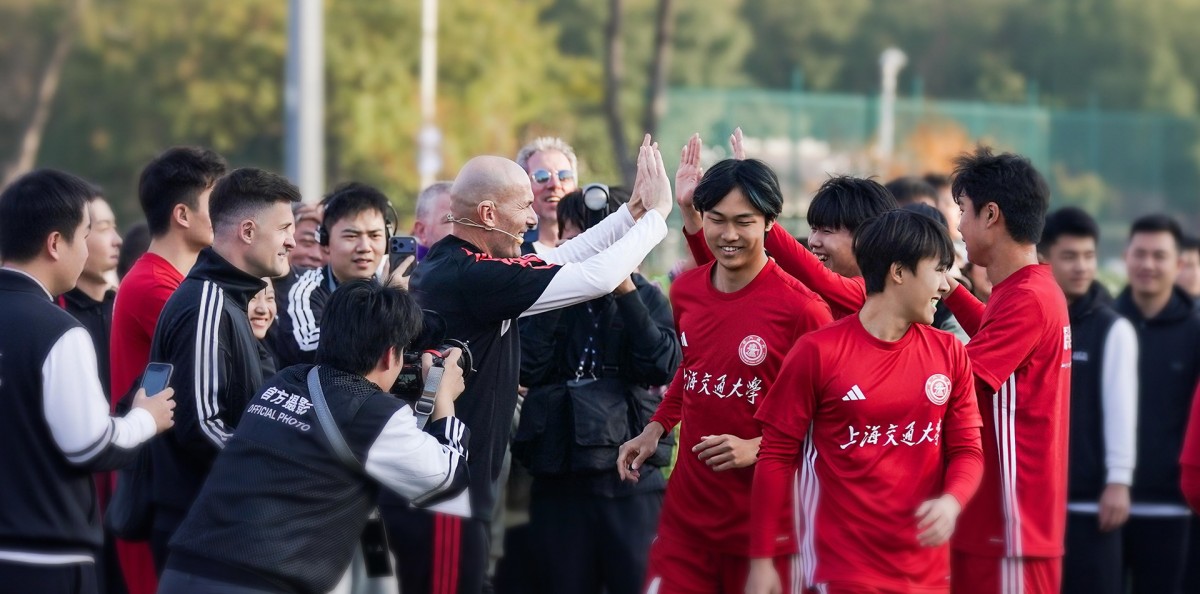On the afternoon of October 27, 2025, Shanghai Jiao Tong University welcomed a distinguished scholar—Professor Martin Edward Hellman, Honorary Professor of Electrical Engineering at Stanford University and recipient of the 2015 Turing Award.
Professor Hellman delivered a thought-provoking and forward-looking lecture titled “The Imperative for Greater International Cooperation” at the Minhang Campus. The event was hosted by Professor Gu Dawu, Associate Dean of the School of Computer Science, who also extended a warm welcome. The lecture attracted a large audience and sparked enthusiastic responses from both faculty and students.
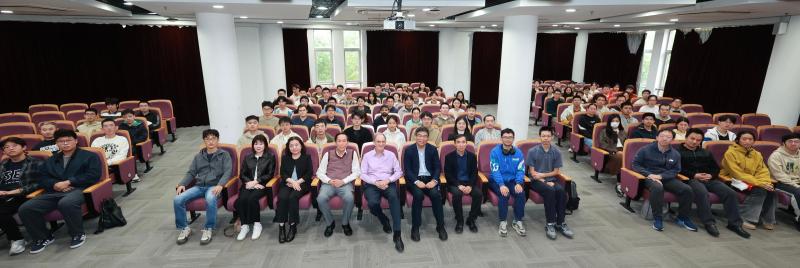 In his opening remarks, Professor Gu highly commended Professor Hellman’s academic contributions and sense of social responsibility. He noted that Professor Hellman is not only one of the pioneers of public-key cryptography, but also, together with Whitfield Diffie, co-invented the Diffie–Hellman key exchange protocol—a milestone in modern information security that laid a solid foundation for global internet communications. In recent years, Professor Hellman has devoted increasing attention to issues of technological ethics and global challenges, demonstrating a visionary perspective that transcends disciplines and cultures.
In his opening remarks, Professor Gu highly commended Professor Hellman’s academic contributions and sense of social responsibility. He noted that Professor Hellman is not only one of the pioneers of public-key cryptography, but also, together with Whitfield Diffie, co-invented the Diffie–Hellman key exchange protocol—a milestone in modern information security that laid a solid foundation for global internet communications. In recent years, Professor Hellman has devoted increasing attention to issues of technological ethics and global challenges, demonstrating a visionary perspective that transcends disciplines and cultures.
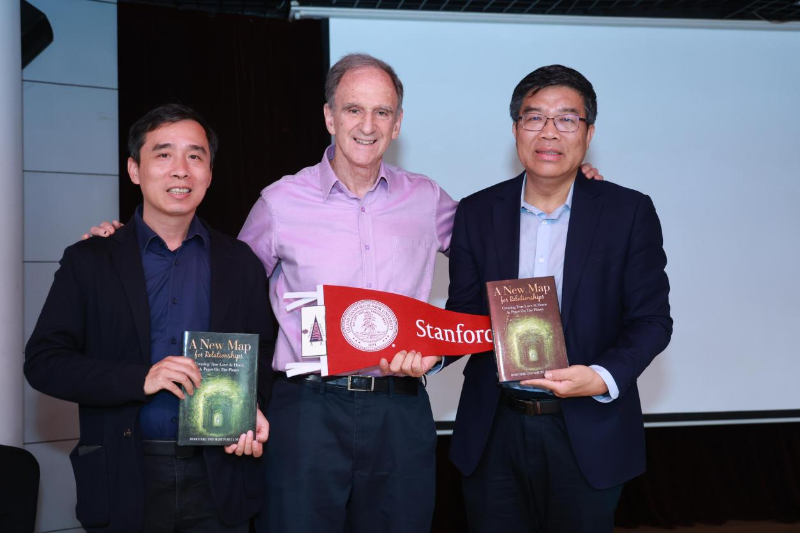
In his keynote lecture, Professor Hellman began with the fundamental question: “Is technology inherently good?” He systematically explored the potential impacts of major technological threats—nuclear weapons, artificial intelligence, bioengineering, and climate change—on humanity’s shared future. He emphasized that, in the absence of effective international coordination, any single technology could become a catalyst for systemic risk.
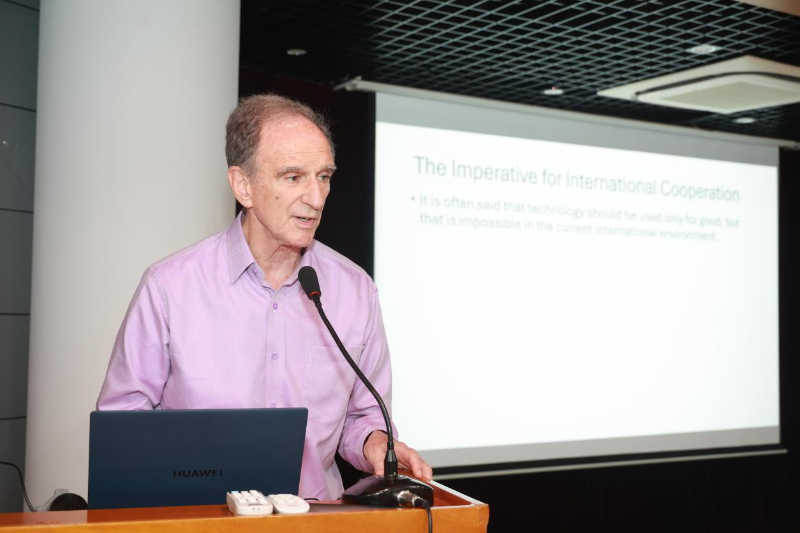
Citing his research published in The Bulletin of the Atomic Scientists, Professor Hellman pointed out that the current global risk of a large-scale nuclear war is approximately 1% per year—meaning that a newborn today faces a lifetime probability of over 50% of experiencing nuclear conflict. Even if the annual risk were reduced to one in a thousand, humanity would still face 10 to 20 “Cuban Missile Crisis–level” confrontations over the next millennium. Drawing on historical examples—from U.S.–Soviet submarine standoffs and U-2 airspace incursions to repeated nuclear false alarms and command failures—he stressed that humanity has repeatedly hovered on the brink of catastrophe by mere chance.
“We cannot afford a one-percent risk, nor can we rely on luck,” Professor Hellman warned. “As emerging technologies such as artificial intelligence and gene editing continue to empower conflict and competition, systemic risks are accumulating at an unprecedented rate.”
At the end of his lecture, Professor Hellman cited the “nobler hypothesis” proposed by his mentor Harry Rathbun—the belief that humanity possesses both the will and the capacity to bring about fundamental change. He called on students and scholars alike to confront reality with reason and courage, to replace confrontation with cooperation, and to work together toward a new paradigm of global governance based on “acceptable risk.”
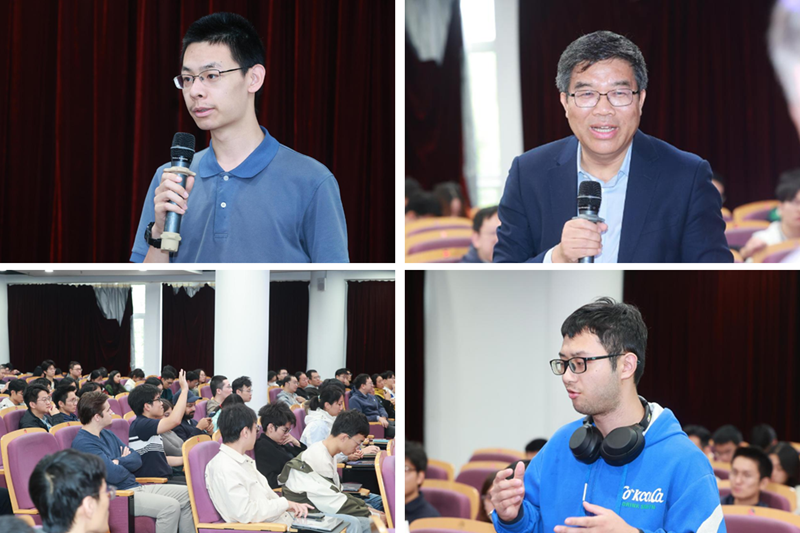
The Q&A session brought the event to its climax. Students raised lively questions on topics such as “Will AI reshape strategic balance?”, “What is the new role of cryptography in crisis management?”, and “How can young scholars contribute to global governance?” Professor Hellman responded to each with depth and wit, drawing frequent applause from the audience.
This event not only marked a significant occasion in SJTU’s international academic exchange, but also built a bridge for deeper East–West dialogue on the ethical dimensions of science and technology and the shared destiny of humankind. Professor Hellman’s visit offered valuable insights for the future of interdisciplinary education and the global conversation on responsible innovation.
Author: School of Computer Science
Translated by: Rebecca
Proofread by: Rebecca

